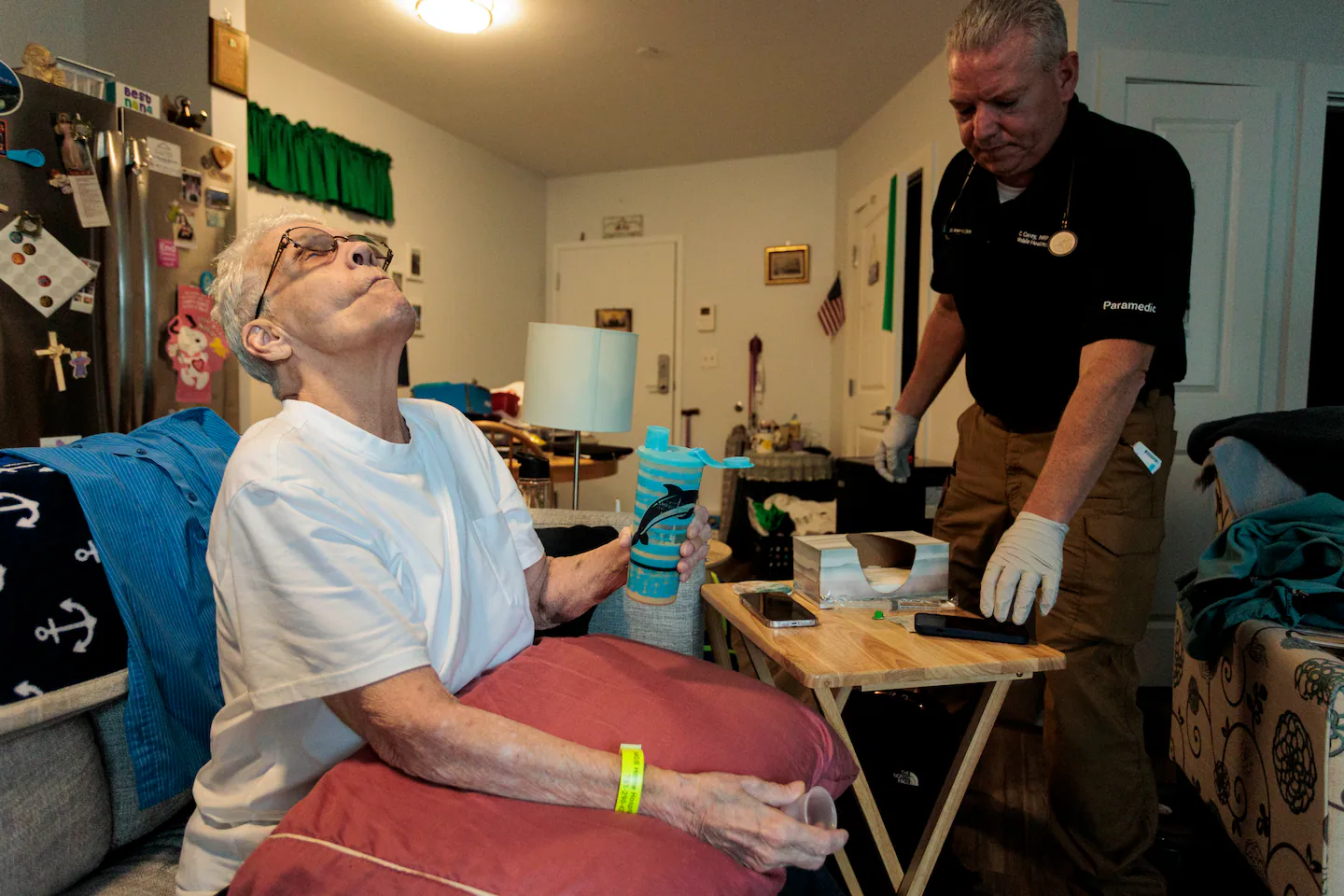
Major hospital systems in Massachusetts have stopped accepting patients to their home hospital programs as the expiration of a Medicare provision allowing the care approaches — along with a potential government shutdown.
The provision will expire Wednesday unless Congress, locked in a standoff over funding the federal government, acts to extend it before midnight. If the provision expires, as appears likely, health systems offering hospital services to people with certain conditions in the comfort of their homes must discharge the patients or bring them back to hospitals.
UMass Memorial in Worcester stopped admitting patients to its Hospital at Home program on Saturday morning and is working to discharge patients when safe. Any patients still requiring in-patient-level care Tuesday night will return to the hospital.
Dr. Constantinos “Taki” Michaelidis, medical director of Hospital at Home at UMass Memorial Health in Worcester, estimated that, of the 55 patients boarding at the emergency department on Monday morning, 20 could have been moved to home hospital care.
“Patients don’t want to come back [to the hospital],” Michaelidis said. “We’ve had several patients tell us that.”
Advertisement
Mass General Brigham alerted its emergency room physicians Monday morning that the system would no longer transfer patients to home hospital “for the foreseeable future,” said Dr. Stephen Dorner, chief of clinical operations and medical affairs at MGB Healthcare at Home. Last year, patients had to wait an average of 19 hours to get a medical/surgical inpatient bed at MGB.
“My phone started blowing up immediately. There was an outcry from clinicians,” Dorner said. “This has become a routine way that we provide care across Mass General Brigham, and not just here, but 400 plus other hospital around the country.”
Advertisement
The Centers for Medicare and Medicaid Services first permitted home hospital programs during the COVID-19 pandemic as a way to open hospital beds and ease an acute shortage. Eight of these programs operate across Massachusetts.
In the five years since the COVID outbreak, the results of home hospital programs have been positive. Patients can move more, recover for longer and avoid hospital-acquired infections. The cost of a home hospital stay is the same as a hospital.
Advocates for home hospital care say they are confident that Congress will eventually extend the program, which has bipartisan support. Lawmakers across the aisle have cosponsored bills that would extend the program for five years.
The question is when Congress will get to vote on that extension as a government shutdown over the new budget nears. In the meantime, Mass General Brigham will have to absorb 70 more patients into its hospitals.
“That means longer wait times in emergency departments. That means longer boarding times, waiting in hallways for inpatient beds,” Dorner said. “And what’s been shown time and again is that when there are longer wait times and longer boarding times, outcomes get compromised as a result.”
Marin Wolf can be reached at marin.wolf@globe.com.



